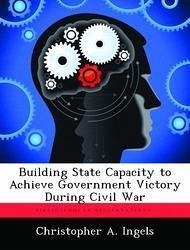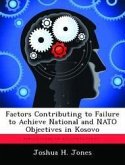Focusing efforts toward building security force capability without increasing state capacity is an ineffective strategy to achieve government victory in civil war. The purpose of this monograph is to advance and test the hypothesis that simultaneously building state capacity while expanding military capability is a more effective strategy for achieving government victory when conducting civil war. Developing state capacity to sustain Security Sector Reform (SSR) is also important to the current United States'; strategy for increasing the likelihood of an Afghan governmental victory over Taliban rebels in Operation Enduring Freedom. Current United States'; Army doctrine -- Field Manual (FM) 3-07, Stability Operations, and FM 3-24, Counterinsurgency Operations--attempts to address both state capacity and security force development by providing useful methods for combating insurgency while also addressing all aspects of state capacity building. However, flaws in this doctrine steer leaders toward focusing resources on troubled regions of conflict, thereby ignoring peaceful areas under government control. Since conflicted regions lack continuous peace, efforts to implement a stability strategy amount to little more than humanitarian relief, and fail to add capacity that strengthen a state's ability to achieve victory, and maintain peace once the war's outcome is determined. This monograph finds that a simultaneous effort to combat rebels, and provide humanitarian relief in conflict zones, while building state capacity in peaceful regions, is a more effective strategy for achieving government victory in civil war. Additionally, only when a state strengthens its institutions leading to a prosperous economy, is it able to move beyond self-sufficiency and stand a greater chance of achieving victory in civil war. To determine how simultaneously building state capacity and security force capability increases the likelihood of government victory in civil war, this monograph u
Hinweis: Dieser Artikel kann nur an eine deutsche Lieferadresse ausgeliefert werden.
Hinweis: Dieser Artikel kann nur an eine deutsche Lieferadresse ausgeliefert werden.








